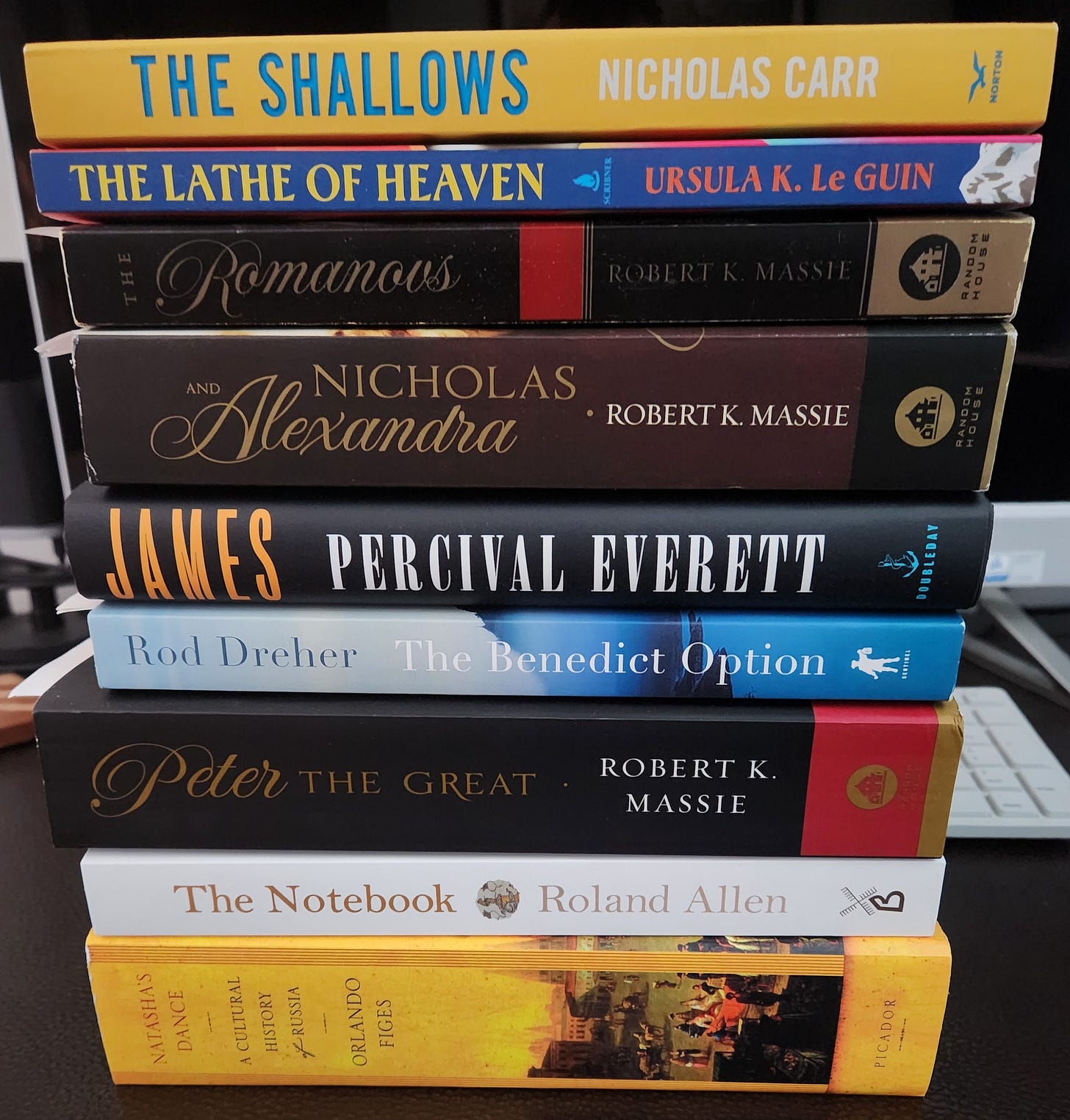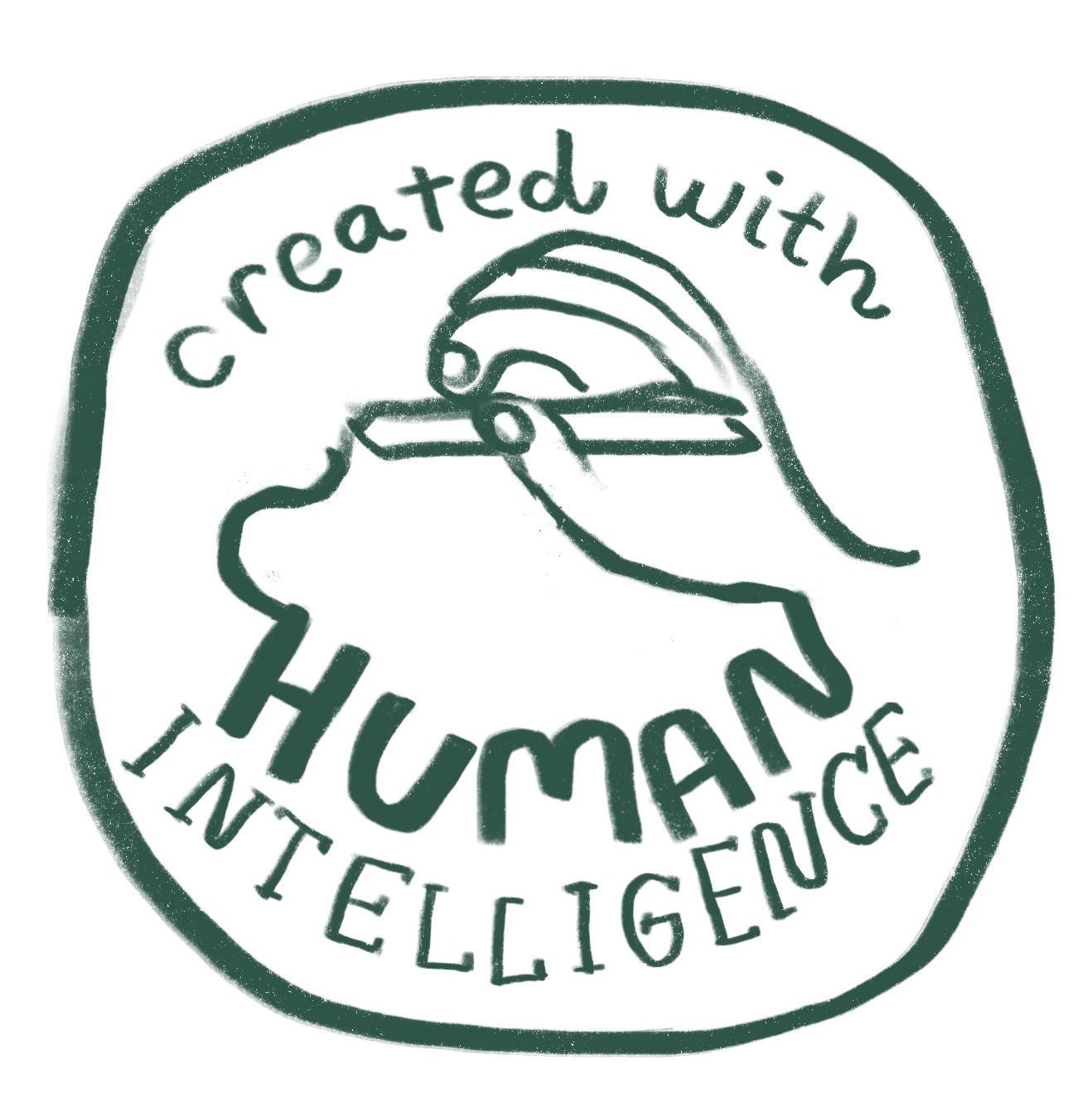Exploring Life through the Written Word
For those who prefer to read on paper, this PDF is provided for your convenience.
Dear Friends,
The older I get, the more I become focused on time and the realization that there is a finite amount of it. The articles I am sharing with you this month bring that topic to light in diverse ways. I am not trying to preach that anyone should follow a specific methodology. Rather, it is critical that we are aware of the time we have and how we use it.
“How did it get so late so soon? Its night before its afternoon. December is here before its June. My goodness how the time has flewn. How did it get so late so soon?” — Dr. Seuss
- remains one of the authors I always devote time to. I typically print out her articles, sit in my recliner with pen in hand, and take my time to read at leisure. I take notes. I reflect. This article, In defense of interstitial time, is particularly appropriate for this month’s focus.
- is another who always has well-researched essays on topics of importance. He recently wrote, How Social Media Shortens Your Life, an article that will likely be eye-opening for many readers. Social Media companies use tried and true techniques to make your forget the amount of time you are spending staring at the screen. Do yourself a favor and give this one a read.
Earlier this year I read The Summer Book by Tove Jansson and wrote a review of it that couldn’t possibly do it justice. I invited my friend,
to share his thoughts on the book since he was the one who introduced the book to me. Today I want to share a third review with you, this time by Alexander’s sister, . Each of these reviews is different and bring to light the power of a single book to evoke so many varied feelings among readers. Give the reviews a read and then go grab a copy of the book by clicking the title above.
Personal Reading:
The Waiting by Michael Connelly. Book 39 in the Harry Bosch Universe. Exceptional as always. Connelly delivers another stellar addition to his beloved series. Fans won’t be disappointed as he maintains his trademark excellence in crime fiction. The narrative flows with the confident pacing and sharp dialogue we’ve come to expect. Whether you’re a longtime follower or new to Connelly’s work, this installment showcases why he remains a master of the genre. The characters feel authentic, the plot engages from start to finish, and the writing maintains that perfect balance of tension and procedural detail that makes his books impossible to put down.
The Stars, Like Dust by Isaac Asimov. Book 2 in the Galactic Empire series. A middling entry in Asimov’s extensive catalog, this science fiction novel represents his earlier work when he was still finding his distinctive voice. While completists working through Asimov’s bibliography will want to read it, casual fans might find it less compelling than his more celebrated works. The story has moments of intrigue and showcases glimpses of the grand ideas that would later define Asimov’s legacy, but it lacks the polish and depth of his masterpieces. Worth reading for context in understanding Asimov’s evolution as a writer, if not for pure entertainment value.
Battle Mountain by C.J. Box. Book 25 in the Joe Pickett series. Box proves once again why Joe Pickett ranks among crime fiction’s most compelling protagonists. This latest adventure combines Wyoming’s rugged landscape with Box’s gift for creating tension that builds naturally from character and setting. Pickett remains wonderfully human—flawed, determined, and deeply principled. Box excels at weaving environmental and political themes into thrilling narratives without preaching. The supporting cast shines, the dialogue crackles with authenticity, and the plot unfolds with satisfying complexity. For both series devotees and newcomers, this demonstrates Box at the height of his storytelling powers, delivering another outstanding entry.
Camino Island by John Grisham. Grisham ventures into lighter territory with this entertaining caper that trades courtroom drama for bookish intrigue. Set in the literary world, it offers a breezy, enjoyable read that showcases Grisham’s versatility beyond legal thrillers. The Florida setting provides a sun-soaked backdrop for a plot involving rare manuscripts, writers, and booksellers. While it may lack the intensity of his classic legal novels, it compensates with charm and wit. Grisham’s prose remains effortlessly readable, making this perfect beach reading. A fun departure that still delivers the page-turning quality readers expect from this bestselling author.
Camino Winds by John Grisham. The second Camino novel maintains the leisurely pace and literary setting that made its predecessor enjoyable. Grisham weaves a hurricane into the plot, adding natural drama to the bookish intrigue. While following familiar beats, the story remains engaging thanks to Grisham’s reliable craftsmanship and the return of likeable characters from the first book. The mystery unfolds predictably but entertainingly, with enough twists to keep pages turning. Like comfort food, it may not surprise but satisfies. Another solid entry that proves Grisham can successfully blend his thriller instincts with a more relaxed coastal setting.
The Story of the Lost Child by Elena Ferrante. Book 4 in the Neapolitan Quartet. The final installment of the internationally acclaimed Neapolitan Novels brings the epic friendship between Elena and Lila to its conclusion. While the quartet has earned passionate devotion from millions of readers worldwide, not everyone will connect with Ferrante’s intense, often uncomfortable exploration of female friendship, ambition, and identity. The prose remains raw and unflinching, the characters complex and sometimes unlikeable. For those who found the earlier books challenging, this finale offers closure but maintains the same demanding emotional register. Worth completing for cultural literacy and to understand the phenomenon, even if it doesn’t become a personal favorite.
Camino Ghosts by John Grisham. Grisham saves the best for last in his Camino trilogy, delivering a finale that surpasses its predecessors. The familiar Florida setting and beloved characters return for their most engaging adventure yet. Grisham successfully balances multiple plot threads involving history, environmental issues, and corporate greed while maintaining the series’ lighter tone. The pacing feels more assured, the stakes higher, and the resolution more satisfying than in the previous installments. Long-time Grisham readers will appreciate how he’s refined this more relaxed style while newcomers can jump in here without feeling lost. A thoroughly enjoyable conclusion to an entertaining trilogy.
Pebble in the Sky by Isaac Asimov. Book 3 in the Galactic Empire series. Asimov’s debut novel shows its age and inexperience, representing a necessary but unremarkable step in his development. While containing seeds of themes he’d later explore masterfully—galactic empires, prejudice, scientific ethics—the execution feels rough and the characters thin. The plot moves unevenly, and the prose lacks the clarity that would become Asimov’s hallmark. Completists tackling Asimov’s entire bibliography will need to check this box, but casual readers should start elsewhere. Even giants stumble in their early steps, and this serves mainly as a historical curiosity showing how far Asimov would evolve as a storyteller.
*You can click on the title of any book to purchase your own copy. These are affiliate links from Bookshop.org, which earn me a very small commission on any purchase you make.
Video:
My wife and I watched this episode of News 7 Spotlight from New South Wales, Australia. It is an extraordinary story about the power of forgiveness. We simply don’t have enough time in our lives to hold grudges and carry resentment. Give it a watch.
In the past few weeks several readers have sent me a book from my wishlist. Thank you to Jody Collins, Anne Frances Millar, Maria Hanley,
, and Nicole. Several of the books, specifically those ordered from bookshop.org did not come with a gift receipt so I am unsure who sent them but I am grateful just the same.Beyond the Bookshelf is a reader-supported publication. If you've found value in my work and it has helped, informed, or entertained you, I'd be grateful if you'd consider leaving a tip. Your support helps me continue creating content and means more than you know. Even small contributions make a real difference and allow me to keep sharing my work with you. Thank you for reading and for any support you're able to offer.
Until next time,








Thank you so much for including my essay on The Summer Book! It really means a lot to know how much the book moves people (in whatever way), and I thoroughly enjoyed reading your review and Alex's review.
Love this